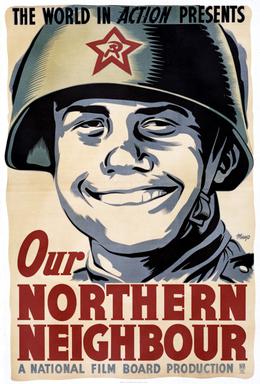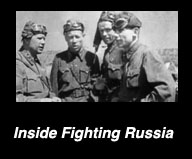Related Research Articles
Roman Kroitor was a Canadian filmmaker who was known as a pioneer of Cinéma vérité, as the co-founder of IMAX, and as the creator of the Sandde hand-drawn stereoscopic 3D animation system. He was also the original inspiration for The Force. His prodigious output garnered numerous awards, including two BAFTA Awards, three Cannes Film Festival awards, and two Oscar nominations.
Universe is a 1960 black-and-white documentary short film made in 1960 by Roman Kroitor and Colin Low for the National Film Board of Canada (NFB). The NFB writes: "[The film] creates on the screen a vast, awe-inspiring picture of the universe as it would appear to a voyager through space. Realistic animation takes you into far regions of space, beyond the reach of the strongest telescope, past Moon, Sun, and Milky Way into galaxies yet unfathomed."
Donald Code Brittain, was a film director and producer with the National Film Board of Canada.
Don Owen was a Canadian film director, writer and producer who spent most of his career with the National Film Board of Canada (NFB). His films Nobody Waved Good-bye and The Ernie Game are regarded as two of the most significant English Canadian films of the 1960s.
Eugene Boyko known to many as "Jeep", was a Canadian filmmaker who worked with the National Film Board of Canada. An early film of his, Helicopter Canada, was nominated for an Academy Award for Best Documentary Feature.

Drylanders is a 1962 Canadian Western film directed by Don Haldane and Written by M. Charles Cohen and starring Frances Hyland and James B. Douglas. It was the National Film Board of Canada's first English-language feature film and its earliest entry outside of the documentary format.
Memorandum is a one-hour 1965 documentary co-directed by Donald Brittain and John Spotton, and produced by John Kemeny for the National Film Board of Canada. It follows Bernard Laufer, a Jewish Holocaust survivor, on an emotional pilgrimage back to the Bergen-Belsen concentration camp. Considered by many critics to be Brittain's finest work, the film's title refers to Hitler's memorandum about the "final solution."
Canada Carries On was a series of short films by the National Film Board of Canada which ran from 1940 to 1959. The series was created as morale-boosting propaganda films during the Second World War. With the end of the war, the series lost its financial backing from the Wartime Information Board, but continued as an NFB series of theatrical shorts that included newsreels as well as animated shorts.
Cry of the Wild is a 1972 feature-length documentary film by Bill Mason and his second of three films about wolves. The film is a personal account of the two years Mason spent shooting his first film on wolves, Death of a Legend, incorporating footage from the earlier film. Cry of the Wild was shot in the Northwest Territories, British Columbia and Canadian Arctic, as well as near Mason's home in the Gatineau Hills, where he kept and observed three grown wolves and, eventually, a litter of cubs.

Blake is a 1969 Canadian short documentary film produced by the National Film Board of Canada (NFB). The film was directed by Bill Mason, and his fellow filmmaker Blake James, who pilots his own aircraft and lives by a unique code. Blake is Mason's cinematic testimonial to his friend and his "hobo of the skies" lifestyle.

Royal Journey is a 1951 National Film Board of Canada documentary chronicling a five-week Royal visit by The Princess Elizabeth and her husband, Philip, Duke of Edinburgh, to Canada and the United States in the fall of 1951.

What on Earth! is a 1966 National Film Board of Canada animated short co-directed by Les Drew and Kaj Pindal. The film is a mockumentary, introduced in its opening credits as produced by the "National Film Board of Mars" that takes a humorous look at car culture from the point of view of fictional Martians, who mistake automobiles for Earth's true inhabitants and people as their parasites. It attempts to examine the sociology of the automobile as the dominant species on earth, and makes wild guesses about the lifestyle, feeding habits, mating habits and funeral rites of this "species."
John Kemeny was a Hungarian-Canadian film producer whom the Toronto Star called "the forgotten giant of Canadian film history and...the most successful producer in Canadian history." His production credits include The Apprenticeship of Duddy Kravitz, Atlantic City, and Quest for Fire.

Ferry Pilot is a film produced in 1942 by Stuart Legg and Ross McLean for the National Film Board of Canada series The World in Action, in cooperation with the United Kingdom Ministry of Information and the Crown Film Unit. The film has an unaccredited narration by broadcaster Lorne Greene.

Our Northern Neighbour is a film produced in 1944 by Stuart Legg and directed by Tom Daly for the National Film Board of Canada series The World in Action. The film is narrated by broadcaster Lorne Greene.

Pincers on Japan(Piège à Nippon)is a 19-minute 1943 Canadian documentary film, made by the National Film Board of Canada (NFB). The film was directed by James Beveridge, who also produced and directed a similar NFB documentary, Look to the North (1944). Its companion film, Road to Tokyo, was produced in 1942.

Look to the North is a 22-minute 1944 Canadian documentary film, made by the National Film Board of Canada (NFB) as part of the wartime Canada Carries On series. The film was produced and directed by James Beveridge. The title of the film's French version is Vers le Nord.

Inside Fighting Russia is a 1942 22-minute Canadian short documentary film produced by the National Film Board of Canada (NFB) for distribution by United Artists, as part of the wartime The World in Action series. The film documents Russia's fight against Nazi Germany during the Second World War. Inside Fighting Russia is produced by Stuart Legg, and narrated by Lorne Greene. The film's French version title is La Russie sous les armes.

Wounded in Action is a 22-minute Canadian documentary film made in 1944. It was made by the National Film Board of Canada (NFB) as part of the wartime Canada Carries On series. The film documents the work carried out by medical services in saving the lives of those who are wounded in action during the Second World War. The French version title of Wounded in Action is Blessé au combat.
The 16th Canadian Film Awards were held on May 8, 1964 to honour achievements in Canadian film.
References
- 1 2 3 Ohayon, Albert. "Fields of Sacrifice". Curator's comments. Montreal: National Film Board of Canada. Retrieved 2009-11-11.
- ↑ Jim Leach and Jeannette Sloniowski, ed. (2003). Candid Eyes: Essays on Canadian Documentaries. University of Toronto Press. p. 119. ISBN 0-8020-8299-8.
- 1 2 "Fields of Sacrifice". Collection. National Film Board of Canada. 1964. Retrieved 2009-11-11.
- ↑ Ohayon, Albert (November 27, 2009). "From documentary to fiction: The story behind the NFB's first feature film". Curator's comments. National Film Board of Canada. Retrieved 1 December 2009.
- ↑ "Donald Brittain". Canadian Film Encyclopedia. The Film Companion; Take One's Essential Guide to Canadian Film. 2003. Archived from the original on 2007-09-26. Retrieved 2009-11-11.